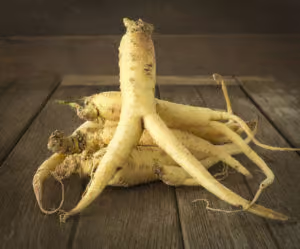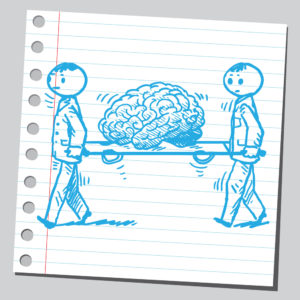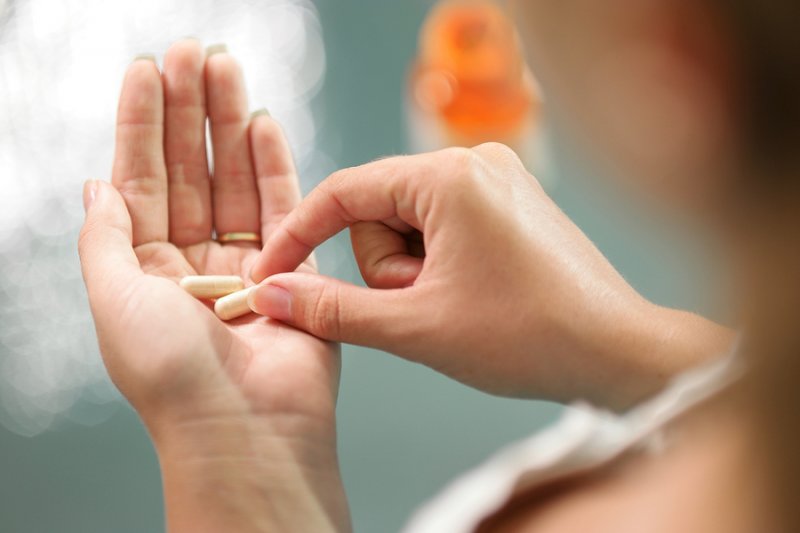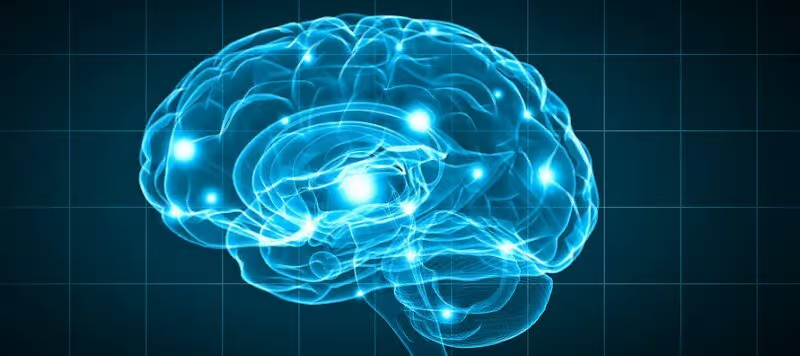Table of Contents
Ginseng is one of the most popular and well researched herbal medicines in the world. It has been used in North America and Asia for thousands of years.
In all, there are 11 species of ginseng. But the name “ginseng” as a nootropic usually refers to either American ginseng (Panax quinquefolius), or Asian ginseng (Panax ginseng). Panax means “cure-all” in Greek.

Researchers in thousands of clinical trials have reported on the efficacy of ginseng for; anti-stress, cognition, memory, anti-wrinkle, flu, digestion, diabetes, erectile dysfunction, blood circulation, immune deficiency, menopause, anti-oxidant, cancer and much more.
Ginseng is rich in various pharmacological compounds. Including a series of polyacetylenes, polyphenolic compounds, acidic polysaccharides, and tetracyclic triterpenoid saponins (ginsenosides).
Both American and Asian Ginseng contain ginsenosides which researchers believe are the most active ingredient.
Here we are investigating ginseng as a nootropic.
Ginseng helps:
- Mood and Stress. Ginseng helps improve mood and reduce stress. It works as an adaptogen, reducing adrenal fatigue, boosting GABA and providing an anti-stress effect.[i]
- Neurotransmitters. Ginseng provides neuro-protective effects on the dopaminergic-pathway which can help with ADHD.[ii] And ginseng is a serotonin and norepinephrine reuptake inhibitor. Working as an antidepressant and helping some symptoms of ADHD.[iii]
- Brain Energy. Ginseng acts as an anti-inflammatory by reducing cytokines. And as an anti-oxidant. Boosting ATP production in mitochondria, in part because this antioxidant effect shields mitochondria.[iv]
Overview
Ginseng is the most famous medicinal herb in Asia. It must be grown for 5 years before its harvested. The maturity of the plant influences the density of active compounds beneficial to human health.

The term “ginseng” comes from the Chinese word ‘rénshēn’ (person + plant root). Because the root shape of ginseng resembles the legs of a human.
“Panax” comes from the Greek ‘pan’ (all) and ‘akos’ (cure). In traditional Asian medicine ginseng was used for many different issues affecting human health. An “over-all” cure.
The four largest producers of ginseng are South Korea, China, Canada and the U.S, with Canada being the largest exporter. The largest consumer of ginseng is South Korea.
South Korea also conducts the majority of research on ginseng. With 1,000 scholars who publish at least 100 research papers per year.[v]
The two primary ginsengs used for brain function are Asian Ginseng (Panax ginseng), and American ginseng (Panax quinquefolius).
Ginsenosides increase protein synthesis and the activity of neurotransmitters in the brain. And ginseng stimulates the formation of blood vessels and improves blood circulation in the brain. Which improves memory and cognitive abilities.[vi]
How does Ginseng work in the Brain?
Ginseng boosts brain health and function in several ways. But two in particular stand out.
- Ginseng boosts physical and mental energy. Many of us deal with a lack of energy and chronic fatigue nearly every day. In today’s world, and particularly in Western society, we’re suffering from mental and physical fatigue. From overworked, stressed students to seniors.
But this kind of fatigue is not a natural offshoot of ‘getting older’. Often it’s difficult to pinpoint what exactly is causing this fatigue. And the first thing most of us think of is reaching for an energy drink, caffeine, or a prescription stimulant.
While these options may work in the short-term, they don’t produce natural energy in your body. This is where ginseng comes in and saves the day.
One double-blind, placebo-controlled trial with 30 healthy young adults demonstrated Panax ginseng’s cognitive benefits. The study found that a single dose of 200 mg or 400 mg of ginseng reduced blood glucose levels. And significantly reduced mental fatigue.[vii]
- Ginseng improves memory and learning. Most people who use ginseng report feeling more alert. And several trials show Asian ginseng can improve thinking and learning. Some of the research shows Panax ginseng can boost performance on mental arithmetic, concentration, and memory.
One example of several that show how ginseng seems to affect memory and learning is by boosting nerve growth factor (NGF) and neurite growth in the brain. This study was done on chicks with the ginsenoside Rb1.
The researchers found this ginseng extract significantly potentiated NGF and showed neurite outgrowth. [viii]
How things go bad
Our brain chemistry and energy metabolism are constantly changing. And any number of factors from chronic stress to disease and environmental factors can degrade cognitive function.
↓ Memory, recall, reaction time and mood decline
↓ Neurotransmitters and cellular signaling breakdown
↓ Chronic stress reduces memory capacity and overall brain health
↓ Nerve growth factor and neurogenesis decline
↓ Free radicals and inflammation damage brain cells
↓ Immune system is compromised
All of these changes can happen at any age. And are certainly contributing factors to age-related cognitive decline.
Ginseng benefits
Panax ginseng (Asian) and Panax quinquefolius (American) contain a collection of active compounds called ginsenosides. These triterpenoid saponins (plant chemicals) are unique to the ginseng species of plants. And are steroid-like in nature.
Here’s a mind-blowing statistic; well over 100 different ginsenosides exist.[ix] The major ones are designated Ginsenoside Ro, Rb(1), Rb(2), Rc, etc. All are extracted from the rhizome (root) of the ginseng plant.
You’ll notice if you’ve reviewed any of the other nootropics listed on NootropicsExpert.com that I usually include a diagram of the active chemical compound in that nootropic.
In this case I’m not including the diagram because each compound extracted from ginsenoside is different. And there are dozens of them.
Each ginsenoside has a unique effect in your body and brain. And is often even metabolized differently in your digestive system.
Other components of ginseng include;
-
- Polysaccharide ‘Ginsan’ which is an immune system modulator[x]. Ginsan is likely what helps tame inflammation in the brain. Which helps a host of cerebral functions like; neurotransmitters working more effectively, prevents apoptosis (cell death), improves memory, mental energy and more. Anti-inflammatories or not talked about much in the nootropics community. And I think in the future you’ll be hearing a lot more about how important they are to cognitive health and brain function.
-
- MicroRNA’s which are gene modulators. Researchers have recently identified up to 73 MicroRNA’s in ginseng.[xi] These tiny non-coding molecules are capable of regulating the gene expression in the DNA of your brain cells. Which is an extremely complex subject in itself. And have the potential to affect nearly everything that happens in your brain.
-
- Polysaccharides which have anti-cancer effects. Another subject not talked about in nootropic circles. But fundamentally important to brain health.[xii]
- The amino acids L-Arginine and GABA (gamma-aminobutyric acid), and glutamate.[xiii] The neurotransmitter GABA is naturally produced in your brain and provides anti-anxiety and calming effects. Likely why supplementing with ginseng has a calming and anti-anxiety effect.
- Polysaccharides which have anti-cancer effects. Another subject not talked about in nootropic circles. But fundamentally important to brain health.[xii]
Several books could be written on how ginseng affects your brain. Including its appetite-suppressant qualities, ability to boost cognition, reducing fatigue, reducing depression, anxiety, stress, improving memory and learning, as a neuroprotectant, and increasing cerebral blood flow.
How does Ginseng feel?
Supplementing with ginseng should boost your energy levels, both physical and mental energy. Ginseng has stimulant-like qualities and should help if you’re dealing with chronic fatigue. But unlike standard stimulants, your boost in energy will come with a more ‘relaxed’ feel.
Ginseng can boost mental alertness. And thinking should feel quicker and clearer. Recall and long-term memory should improve.
Ginseng also boosts your immune system so you may be able to avoid the flu or a cold. Ginseng is particularly helpful for anyone with a compromised immune system. And if you’re living with, or working around anyone else who is sick.
Ginseng Clinical Research
Much of the research on ginseng comes out of South Korea. And much of this research has been done with Asian ginseng (Panax ginseng). Showing how Panax ginseng improves cognitive function.
American ginseng (Panax quinquefolius) has a somewhat different ginsenoside profile from Panax ginseng. And it too shows promise in benefiting human cognition.
American ginseng boosts working memory
One double-blind, placebo-controlled trial was conducted with 32 healthy young adults. In this trial, researchers used a highly standardized extract of American ginseng (Cereboost™). Cereboost™ is Panax quinquefolius standardized to 10.65% ginsenosides.
This trial used doses of 100, 200 and 400 mg of standardized ginseng. And participants’ mood, cognitive function and blood glucose were measured at 1, 3 and 6 hours after taking the ginseng extract.
The researchers found that standardized American ginseng provided a significant improvement in working memory. Reaction time accuracy and ‘calmness’ significantly improved at just the 100 mg dose. And improved with higher doses.
The scientists concluded that there was, “robust working memory enhancement following administration of American ginseng”. And these effects are distinct from that of Asian ginseng.
The two ginsengs have different psychopharmacological properties that depend critically on ginsenoside profiles.[xiv]
The bottom-line of this study is that the kind of ginseng you use makes all the difference.
Panax Ginseng Protects & Fuels Brain Mitochondria
A stroke is caused by insufficient blood flow to that part of the brain where the stroke occurs. Lack of blood flow shuts down the oxygen and nutrient supply to brain cells. And things start to break down in the heart of the cell’s energy center – the mitochondria.
This study was done in the Neurology Department at Xijing Hospital in China. Researchers wanted to find out if ginsenoside Rd, one of the major active ingredients in Panax ginseng could protect the brain from stroke.
Rats were given ginsenoside Rd and then subjected to a stroke by reducing blood flow to part of their brain. (Note for gratitude journal – I’m thankful I’m not a lab rat).
The scientists found this Panax ginseng extract protected the rat brain from stroke. And it appeared to do it by protecting brain cell mitochondria from dysfunction, and apoptosis (cell death).[xv]
Researchers also demonstrated that ginseng activates multiple enzymes in the Krebs cycle. This helps mitochondria produce maximum energy in the form of ATP from glucose.[xvi] Which is one of the reasons why supplementing with Ginseng boosts mental energy.
Ginseng Improves Mental Performance
Actoprotector is a new term given to natural compounds that increase mental performance. And enhance your body’s ability to withstand physical loads without increasing oxygen consumption.[xvii]
Actoprotectors are a new subclass of adaptogen that increase physical performance. And some extracts of Panax Ginseng are considered Actoprotectors.
The main difference of Actoprotectors and psychostimulants (caffeine, Ritalin, modafinil, adrafinil, etc.) is that Actoprotectors cause no increase in oxygen consumption or heat production.
The results in improved mental and physical performance are similar. But there’s no “crash” in 4 hours like you get from using a stimulant like Ritalin. You don’t experience the same kind of ‘mental load’ when using ginseng.[xviii]
Ginseng’s steroid-like phytochemical called ginsenosides are what provide this stimulant-like action in the brain. And an improvement in overall quality of life.
One report in 2003 evaluated 9 clinical trials done with humans with ginseng doses from 80 – 400 mg. Study duration spanned 2 – 9 months. And nearly every study evaluated demonstrated some improvement in Quality of Life score.[xix]
Ginseng Recommended Dosage
Dosage of ginseng depends on the extract used, and the quality of the extract. And results seem to be largely dependent on the quantity used.[xx]
To complicate things even more, ginseng dosage depends on the region where its grown, extract strength, and individual needs.
The Chinese for example recommend 2 grams daily while in Europe, the suggested range is 100 – 400 mg daily.
Many naturopaths recommend cycling ginseng. Use it for 3 to 4 weeks and take a week break. Remember, ginseng has steroid-like active compounds. So taking it for extended periods without a break is not recommended.
Ginseng has been and continues to be extensively researched. These doses are based on clinical trial data:
- For stress, anxiety or fatigue: 1-gram ginseng daily dosed 500 mg twice per day
- For Type 2 diabetes: 200 mg per day
- For erectile dysfunction (ED): 900 mg of Panax ginseng 3-times per day
The bottom-line is to stay within the dosage recommended by the ginseng supplement manufacturer.
Ginseng Side Effects
Ginseng is a natural supplement and side effects are generally mild. But it can act as a stimulant in some people. Which can cause anxiety and insomnia.
Long-term use or higher than recommended doses can cause headache, dizziness and stomach upset. If you’re going to use ginseng you should cycle your dosing. Use the recommended dose for 3-4 weeks and take a week off before dosing again.
Women may experience menstrual changes when supplementing with ginseng.
Ginseng is NOT recommended by the under-18 neurohacker. Or women who are pregnant or breastfeeding.
Ginseng may affect blood sugar levels. So if you’re taking drugs for diabetes, check with your doctor first before supplementing with ginseng.
If you are dealing with kidney disease you should avoid using American Ginseng.
Ginseng can interact with:
- Blood-thinning medications
- Antidepressants
- Antipsychotic medications
- Stimulants including caffeine, Ritalin, Adderall, modafinil, adrafinil, etc.
- Morphine
Types of Ginseng to buy
Ginseng supplements are made from ginseng root and root hairs. It’s available in dried, powdered, capsule and tablet forms.
Ginseng is also included in some nootropic stacks and other combination supplement formulas. Some with patented ginseng extracts like Cereboost™, GS15-4, and others.
Experienced users of ginseng seem to prefer American Ginseng (Panax quinquefolius) over Asian Ginseng (Panax ginseng). Each is a unique species of ginseng but both have ginsenosides.
But American Ginseng is cultivated under stricter conditions avoiding pesticides and herbicides. And the colder growing climate encourages higher concentrations of the active ingredients in ginseng.
When buying American ginseng, look for Panax quinquefolius. And when buying Asian ginseng, look for Korean, red or Panax ginseng.
And finally, make sure you buy from a reputable supplement maker. Very recently GNC, Target, Walgreens and Walmart stores in the U.S. were found to contain either contaminants or little to zero ginseng. Walgreens ginseng brand was found to contain nothing but garlic powder and rice.[xxi]
Nootropics Expert Recommendation
Ginseng 100 – 400 mg per day
 I recommend using Ginseng as a nootropic supplement.
I recommend using Ginseng as a nootropic supplement.
Your body does not make Ginseng on its own. So you must take it as a standardized supplement.
Ginseng is especially helpful for chronic fatigue. And a great way to provide a natural physical and mental energy boost.
Ginseng provides anti-anxiety and calming effects. And can boost mental alertness, memory, recall, and learning.
Ginseng is a powerful adaptogen that has been used for thousands of years. The ancient Chinese and other cultures used it for overall health.
We suggest starting with a dose of 100 mg daily. You can safely boost it to 4-500 mg per day depending on the brand and extract.
But remember that ginseng has steroid-like qualities. So make sure you cycle it. Use it for 3-4 weeks and take a week off. And don’t take it late in the day as it may interfere with sleep.
Many neurohackers prefer American over Asian ginseng. It has a slightly different ginsenoside profile. And is grown under stricter conditions ensuring quality and safety.









Join The Discussion - 115 comments
Greta Brown
April 2, 2021
Hello David. I would be very grateful for your advice.
I am taking Sertraline 200 mg per day and Diazapam 4 mg per day, if needed, as prescribed from my Doctor. Would I also be able to take Panax Ginseng alongside these Medications, safely.
Many thanks.
Greta.
David Tomen
April 3, 2021
Greta, I checked with the drug interaction checker and neither one appeared to be contraindicated with ginseng (https://www.drugs.com/interaction/list/).
But Ginseng has been known to not react well with prescription antidepressants. Something to double check with your doctor.
Amar Panjwani
March 6, 2021
Hi David,
I took a Panax Ginseng 250mg tablet but didn’t feel any changes all day. Then I read that the ingredients contained whey, which is a milk derivative. I am extremely lactose-intolerant, so do you think this is the reason why I couldn’t digest it?
Are there ginseng tabs available that don’t contain whey?
David Tomen
March 6, 2021
Amar, Panax Ginseng supplements should not contain anything other than Panax Ginseng. Try this one: https://amzn.to/3kTqemJ
Tina
February 27, 2021
Can one take siberian ginseng with American Panax/ginseng or Asian ginseng? I really am interested in the eleutherosides that Siberian contains, yet want the benefits of either American ginseng or Asian ginseng too.
Honestly, my goal is to boost overall norepinephrine which moves to epinephrine – Maybe siberian can help cut to the case with boosting epinephrine? oddly I seem ok with dopamine as too much hastens anxiety, paranoia, irritation, etc… (adderall helped with energy, but the dopamine part was overload..even at 10mg), It was wonderful at first..I had so much energy…but that was because it can boost norepinephrine…i can’t take ritalin at all…i just feel angry and anxious…but then I read of how they differed and it made sense. I don’t need the dopamine..i need norepinephrine…
Adding on that micro-dosing with nicotine gum helps, but it seems to boost adrenaline more than anything…Or for me it does. it definitely boosts energy, but sometimes the adrenaline can be too much..(low mao-a too…female with 2 low functioning enzymes on both X chromosomes..feeling annoyed with my parents right now)
My dna report explained alot. I seem to have a diminished enzyme (DBH) that moves dopamine over into norepinephrine and have found this one to be key. If i can boost norepinephrine only, i feel much better. So i cycle adderall as to get that affect. But I am looking for any natural boosters for norepinephrine. Hard to find on it’s own..or so I feel like it is. Any suggestions are welcome.
David Tomen
February 27, 2021
Tina, Panax Ginseng is the only supplement I can think of that acts like an SNRI. So it specifically effects serotonin and norepinephrine. Not sure if American Ginseng does the same thing.
I can’t imagine there would be a problem using both Panax along with American Ginseng. It’s not common practice. But who wants to be “common” anyway? 🙂
Amh
November 16, 2020
Hey David I have done a lot of lsd and magic mushrooms and really worried I have messed my brain signaling can any supplement help?
David Tomen
November 16, 2020
Anything that increases Nerve Growth Factor and Brain-Derived Neurotrophic Factor (BDNF) should help. https://nootropicsexpert.com/13-nootropics-to-boost-bdnf/
John
November 6, 2020
Hi David,
Have you heard of Tongkat Ali aka Malaysian Ginseng? It seems to have a lot of evidence behind it for increasing testosterone. I’ve read it also helps anxiety and depression. As we spoke, I am wondering if you know anything about it and if it could be an option to raise my low T vs. getting injections?
David Tomen
November 7, 2020
John, you can try Tongkat Ali and there are a couple of studies showing it boosts testosterone (https://pubmed.ncbi.nlm.nih.gov/21671978/ and https://www.researchgate.net/publication/237098206_Tongkat_Ali_as_a_Potential_Herbal_Supplement_for_Physically_Active_Male_and_Female_Seniors-A_Pilot_Study).
Brigitte
August 16, 2020
Hi David,
Can I recommend a French site that produces the highest quality of Siberian Ginseng? It is no chemicals, no GMO, no additive, cold pressure extraction, high concentration 250 g/l Eleutherococcus senticosus root extract, a liquid form so easy to take in water with your supplements.
When you order 5 bottles they give you one free, and it’s free shipping over 69 euros for all countries. Site is in French but I guess from Canada it’s easy to find a translator.
I have been ordering from them for years (I am in Australia) and I am delighted with this small family business. This is not an affiliated link.
phytonika shop
David Tomen
August 16, 2020
Thank you for sharing Brigitte.
Kevin
July 3, 2020
Hi David,
Is Siberian Ginseng very different from the Asian or American varieties?
thanks,
David Tomen
July 4, 2020
Kevin, Siberian Ginseng does not contain ginsenosides like American and Asian ginseng. Instead, it contains eleutherosides which have a different mechanism of action. It has traditionally been used as an adaptogen, performance enhancer, and it stimulates the immune system. https://www.mskcc.org/cancer-care/integrative-medicine/herbs/siberian-ginseng
You can compare those benefits with the mechanism of action for the ginsengs described above.
Kevin
August 22, 2021
Thanks David,
Do you know if the Siberian variety also needs to be cycled?
David Tomen
August 23, 2021
Kevin, many naturopaths recommend cycling Ginseng because of its steroid-like behavior. That goes for Panax Ginseng and American Ginseng.
Siberian Ginseng (Eleuthero) is nothing like American or Panax Ginseng and is a totally different herb. It does not have the same steroid-like qualities either so does not need to be cycled.
eamonn sych
January 14, 2020
What interaction does this have with Ritalin? Is it just because they are both stimulants so increased heart rate etc.. type of symptoms.
Also is it safe to take fish oil, ginkgo biloba and ritalin, vincopetine together? because from what i understand they are all blood thinners.
David Tomen
January 15, 2020
Eamonn, Ginseng is an SNRI which means it’ll boost serotonin and norepinephrine. Gingko is an MAOI so it will boost all the catecholamines. So using Ginseng and Ginkgo at recommended dosages with Ritalin is likely a bad idea.
Fish Oil on its own is a bad idea. You need 1,000 mg per day of a high quality DHA supplement: https://nootropicsexpert.com/dha/
And Vinpocetine is a great idea because it boosts cerebral circulation while protecting your brain.
The best stack for supporting Ritalin is described in this post: https://nootropicsexpert.com/best-nootropics-for-adhd-add/
eamonn sych
January 15, 2020
Fish oil is bad because it can have mercury in it? Is that why you just suggest a DHA supplement? Also what Nootropics would have bad interactions if i took it with Ritalin? Anything that stands out or any class of drugs i should watch out for? Like maoi types of supplements or something like that?
David Tomen
January 16, 2020
Eamonn, several problems with fish oil including mercury and other toxic contamination, most are not ‘pure’, many are rancid on delivery, and EPA content is much higher than DHA.
Your brain requires 1,000 mg DHA per day which you will not get from a fish oil supplement.
You are correct that MAOIs could be a problem for some people who use Ritalin. But not all people. Each of us is unique and may respond differently. But it is something you need to be aware of.